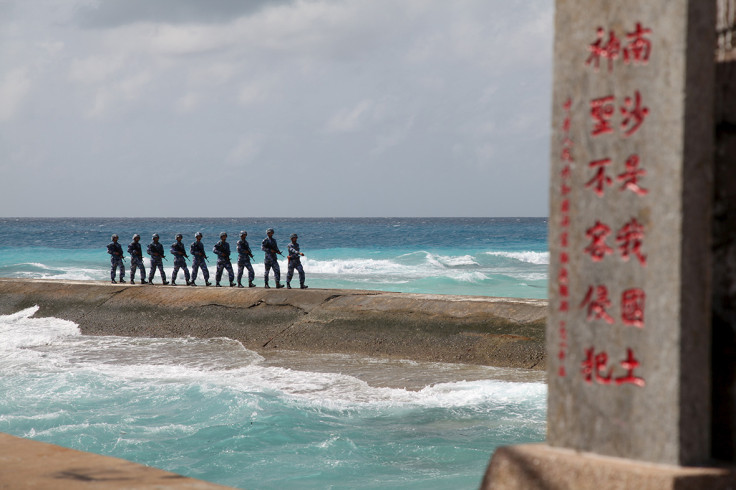South China Sea: Top Chinese admiral warns of 'disastrous' consequences
Sun Jianguo, from the Central Military Commission, rubbishes freedom of navigation issue.
China has again warned its adversaries to keep away from the South China Sea dispute, saying it could be disastrous if the navy of any foreign country carries out secret patrolling of the sea. A senior Chinese admiral said some countries have overestimated the importance of the freedom of navigation issue and added that it does not exist.
Beijing has rubbished The Hague ruling favouring the Philippines and dismissed the international response calling on China to abide by the verdict.
"When has freedom of navigation in the South China Sea ever been affected? It has not, whether in the past or now, and in the future there won't be a problem as long as nobody plays tricks," Sun Jianguo, Chinese admiral from the Central Military Commission, told a forum in Beijing, according to Reuters, which saw the transcript of his comments.
Sun said his country would not let anyone harm its stakes in the sea and that the so-called freedom of navigation issue brings in military threats, as well as "challenges and disrespects the international law of the sea". He added that "it could even play out in a disastrous way".
According to him, the Chinese military should make use of the Permanent Court of Arbitration's verdict to improve its capabilities "so that when push comes to shove, the military can play a decisive role in the last moment to defend our national sovereignty and interests".
Military exercise
China's Maritime Safety Administration announced on Monday (18 July) that it will be closing a part of the South China Sea for a military drill from 19 July to the 21<sup>st. The exercise, the first since the 12 July verdict, would be held offshore from the east of Hainan Island. Beijing has not provided any further details. China had held a massive fire drill ahead of the ruling.
The announcement comes amid a top US navy admiral's visit to China to discuss the dispute and ways to increase interactions between the two militaries, the Associated Press reported.
In recent times, US warships were reported to have sailed deliberately close to one of the Chinese-held islands to exercise its freedom of navigation and challenge Beijing's claims. China too, in retaliation, reportedly deployed fighter jets and ships to warn off the US naval forces while accusing them of threatening its national security and sovereignty.

© Copyright IBTimes 2025. All rights reserved.





















